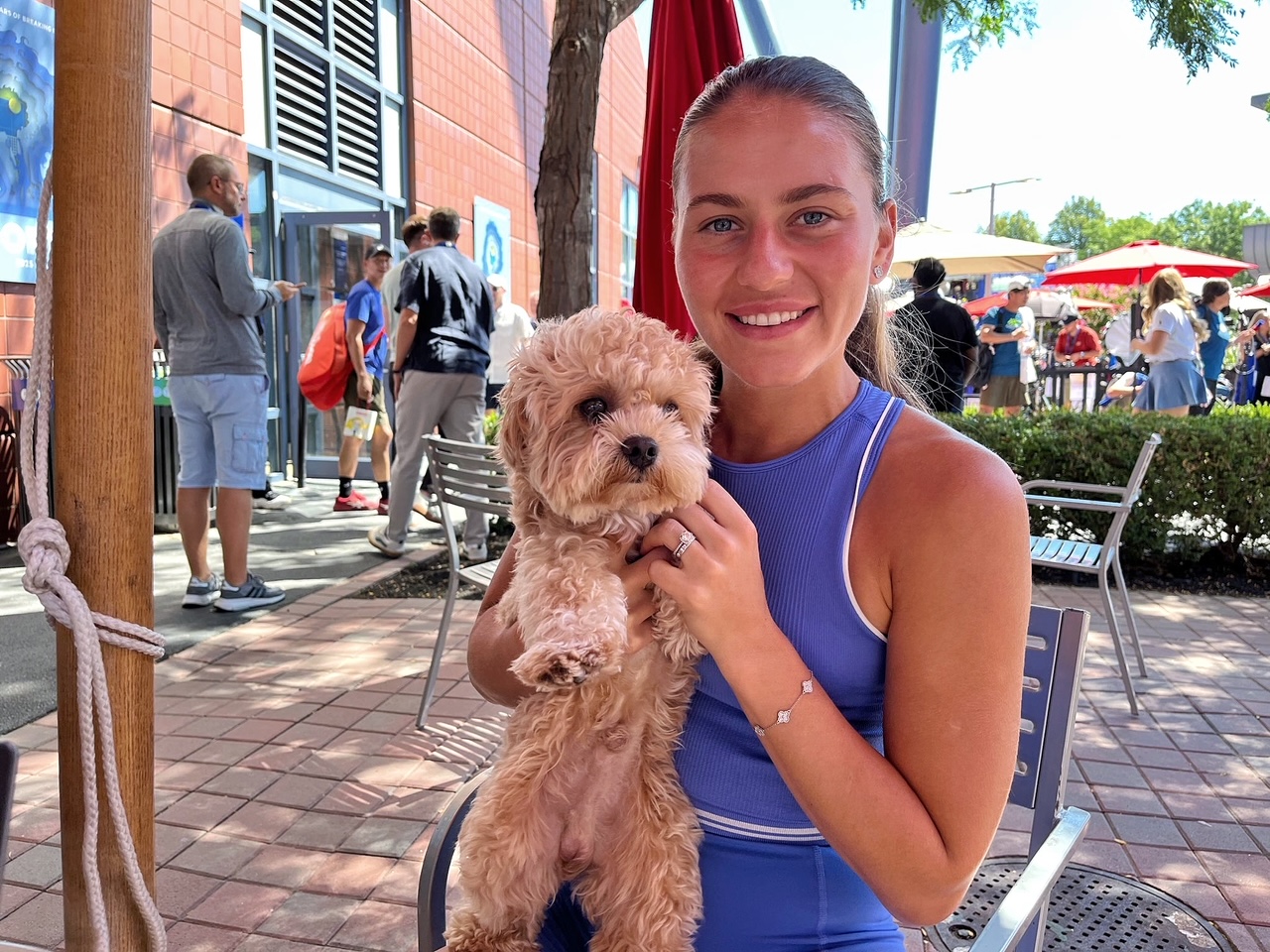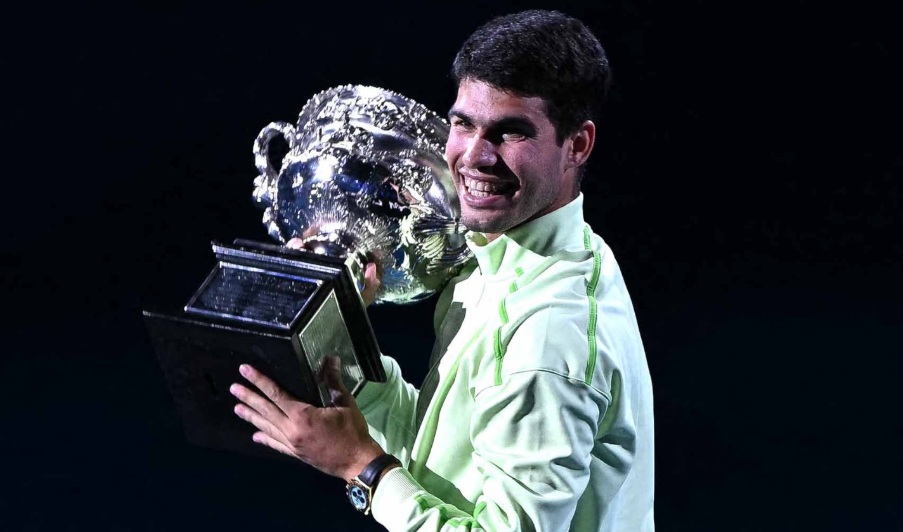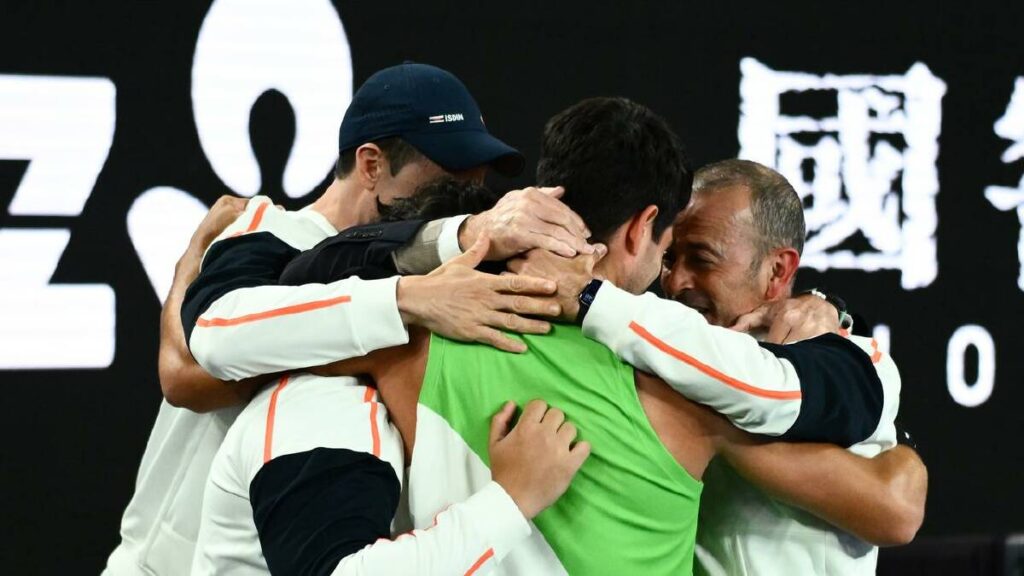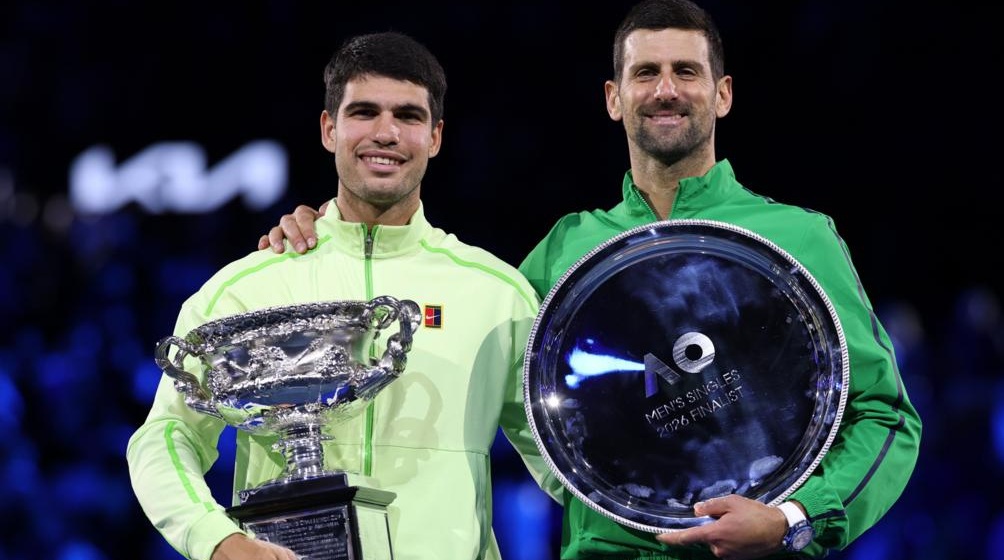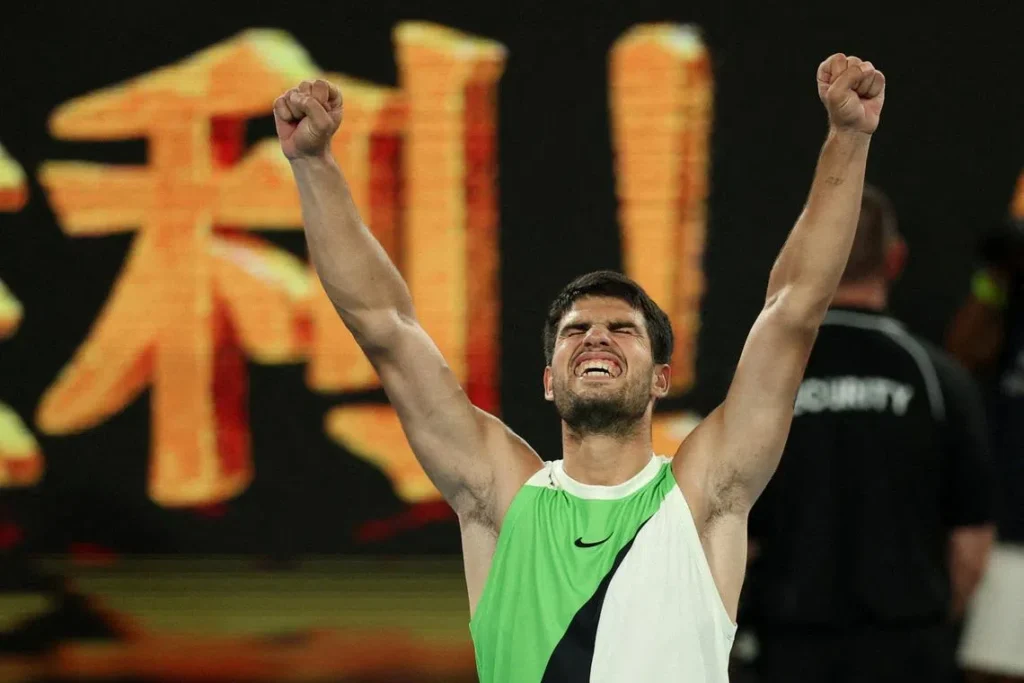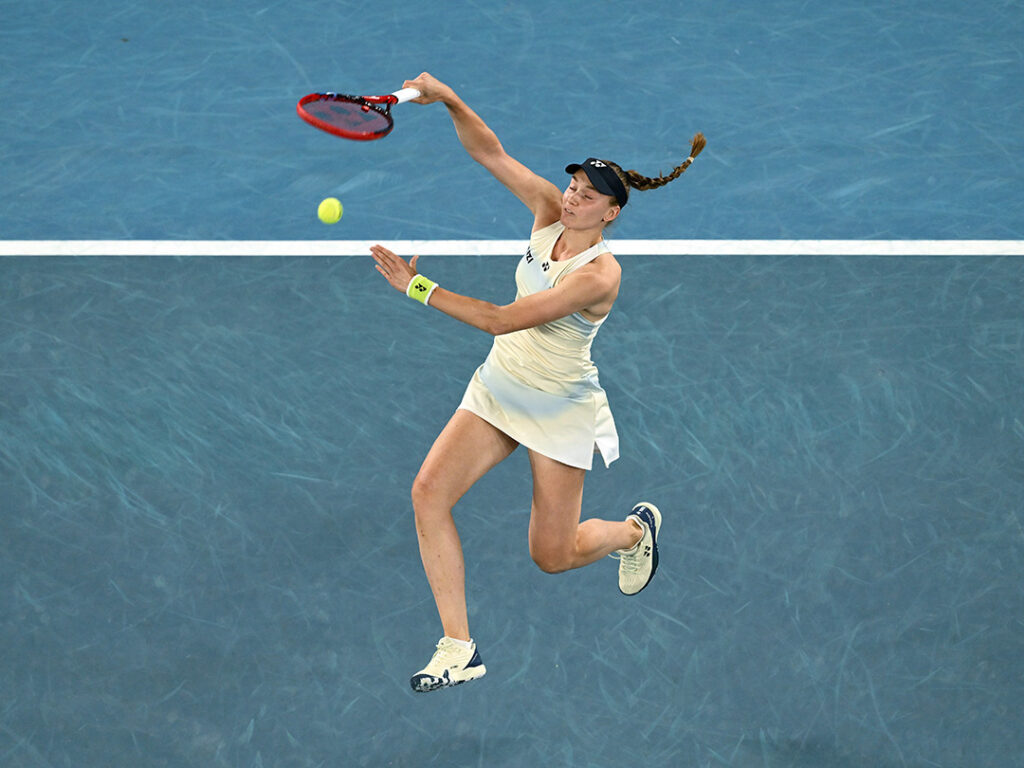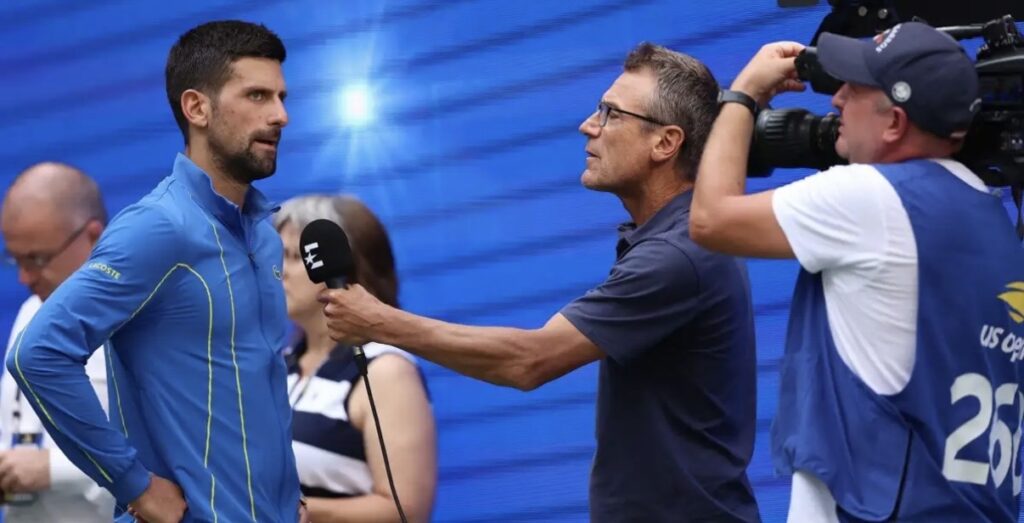Marta Kostyuk has never been afraid to say what she thinks. The Russian invation in Ukraine is always on her mind.
“I see this for two weeks a year and I’m very stressed as I’m there – waking up from explosions, you’re always on standby, you don’t know if there will be missiles, how close the drones will hit tonight to your home”, Kostyuk said in an interview with CLAY.
Ever since Russia invaded Ukraine in February 2022, Kostyuk has used her platform to speak passionately and emotionally about the suffering which her compatriots continue to endure on a daily basis.
The anger at the conflict and the latest wave of imperialist ideology is why Ukrainian athletes, including world number 26 Kostyuk, have refused to acknowledge Russian opponents over the past three-and-a-half years.
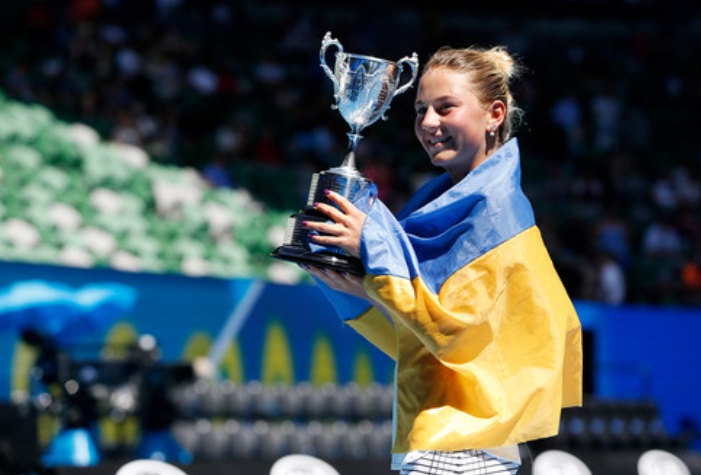
The scars – physically and psychologically – run deep for Ukrainians. Not shaking a Russian’s hand is a non-violent symbol of their nation’s resentment.
“I feel if you’re representing the aggressors’ country then you can’t be neutral,” Kostyuk told CLAY at the recent US Open.
Interview with Marta Kostyuk
– In 2023, you started the Marta Kostyuk Foundation – explain why and what its mission is?
– When the war in Ukraine started it was a natural instinct to help people who are in need. We had a lot of reasons to help, whether it was kids or just people who have suffered from war and I was just thinking of the ways in which I could help and we started the Foundation in 2023 with the focus on kids being affected by the war, but as time went by I realised I can have a lot more impact and make a lot more difference focusing on tennis and popularising tennis as a sport and physical activity in Ukraine. With the team we have created our mission and our goal and our vision and it has been going really well. I think we are going to make the difference we want to do.
– What does representing Ukraine mean to you, particularly in this current time?
– It always meant a lot to me because honestly we have been having a war since 2014 and not just since 2022. It’s not an easy time, there is a lot of loss and a lot of pain, so I try to thrive through it because I feel like there is no other way. My career is not forever, I don’t have an ability to take long breaks when I want to, I have to keep going and that’s what I have been doing all these years. For sure, representing Ukraine and winning for Ukraine and being able to raise the flag and show visibility to the world, what Ukraine is and what type of people are from Ukraine, what we stand for, it is very meaningful and very fulfilling.
– How do you explain the war to players from other countries?
– I never have this problem of explaining anything to anyone, I feel like whoever I have spoken to has already got it, what’s going on. I feel like if you never live the war and understand what it feels like, no matter how I explain it is still not even going to be close to what people are going through. I was never in a position to explain you know to someone who doesn’t understand. I feel if someone really doesn’t understand what is going on then there is no point explaining to those people.
– So you feel there is no need to educate people more?
– Well, I feel like I do but in my experience I didn’t have a need. I did that when the war started, I was speaking a lot on tour and giving interviews but right now I feel people are really aware of what’s going on. I keep reminding people it’s still happening but I feel like I don’t need to explain what is going on.
– With so much conflict across the world, do you think people are forgetting about Ukraine?
– I don’t know. I feel it is up and down, depending on what is going on in the world. People remember more then they forget, then remember and forget. It’s normal human reaction of getting used to things, no matter how traumatic and difficult they are, and I think that’s what’s been happening. My job is to keep talking about it and keep reminding people and showing up, keep being out there. Other than that it’s difficult. People who are not from Ukraine just want to move on and don’t be in this. But I’m not in this position, I’m in it every day. It’s difficult for people who haven’t lived in war to comprehend what the experience of this is. I feel we’re doing all the job we can of reminding and bringing awareness and fundraising and bringing all the help we can into the country. But I feel it’s up and down right now.
– Have you ever tried speaking to Russian players?
– I feel like it has been long gone already. If that was supposed to happen, it was supposed to happen when the war started.
– Did it happen?
– I overheard some conversations. I remember early in the beginning at Indian Wells, I spoke to one player and she said her sister or close friend – I don’t remember – were in Kharkiv and they were bombarded and it was really hard. She was like ‘well she’s there and in it but that’s it’. I didn’t feel any compassion from her or any of the players. Daria Kasatkina [a Russian player who criticised the invasion before switching allegiance to Australia earlier this year] was the only one who spoke out against it, in any way, and other than that everyone else was avoiding these questions and answers, or pretending they were neutral. But I feel if you’re representing the aggressors country then you can’t be neutral – you have to pick a side, which they didn’t do. I felt there was no need to have a conversation in a way because why would I approach them?
– Have any Russian players approached you?
– No.
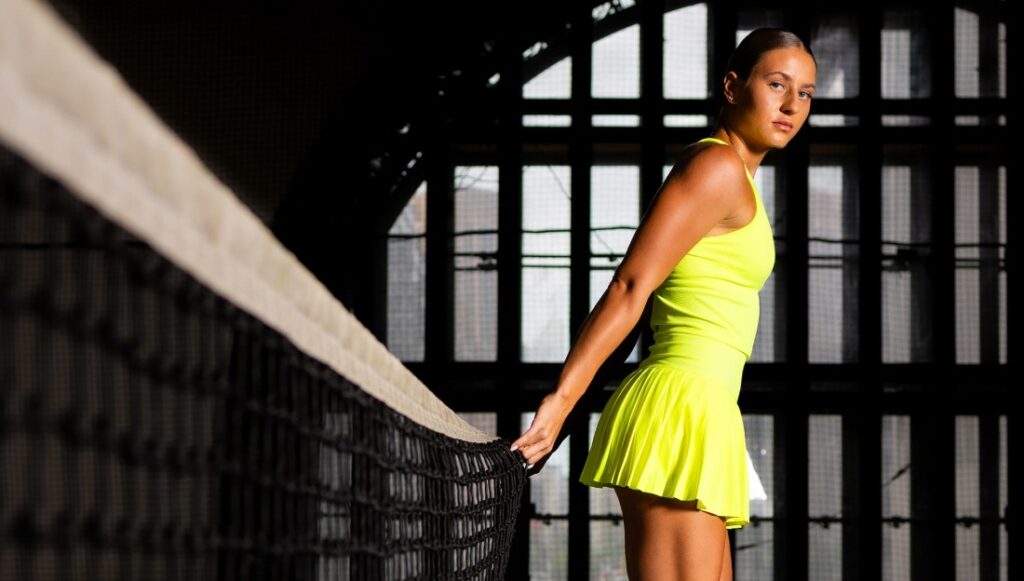
– You decided to shake Kasatkina’s hand after you played in Rome because she was no longer representing Russia. What did you think about her decision and have you spoken to her since?
– I know there are other players who are in contact with her, but I’m not. I’m neutral. I asked her a few questions about her life and Australia a few days ago. I respect her. But like I said in Rome, nothing has drastically changed – I’m not suddenly best friends with her.
– How do you feel now when you go home?
– I feel like every time I go, things are different and the atmosphere is different. I’m going back after the US Open, just for two days, but it feels much more intense. People are exhausted, you can see it. I honestly can’t understand how they can endure this for so long. I see this for two weeks a year and I’m very stressed as I’m there – waking up from explosions, you’re always on standby, you don’t know if there will be missiles, how close the drones will hit tonight to your home – because they are every night. You’re constantly stressed. I’m in awe at how people endure this and manage to keep going and living their lives and keep building things. It doesn’t stop. All my respect to them for this.
If you enjoyed this interview with Marta Kostyuk, don’t miss many other interviews with the stars of the tour — available at this link to our website.
